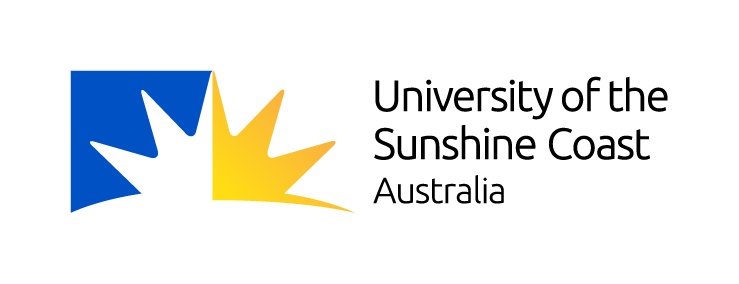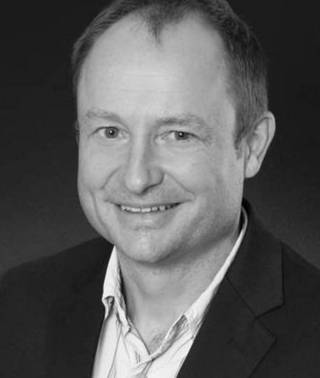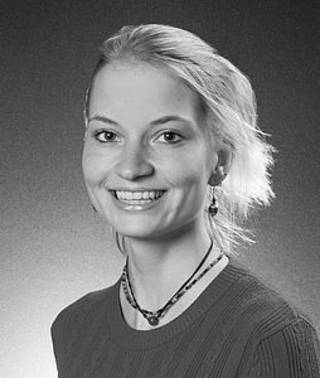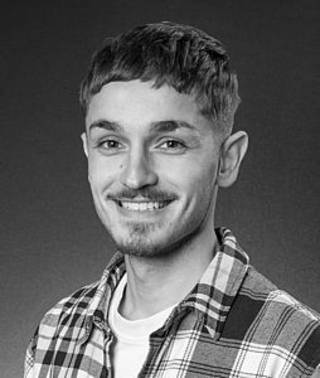Degree programme at a glance
You are fascinated by travelling, contact with other people and languages and would like to turn your passion into a career? Tourism presents many challenges, such as digitalisation and climate change, that offer numerous opportunities for innovative companies and curious individuals. Jobs are out there and waiting to be filled by motivated professionals.
We can offer you a full-time or part-time degree programme that is underpinned by international business practice, with up-to-date study content and modern methods, and that will prepare you perfectly for the world of work.
Do you have any questions? Then contact us or arrange an advisory appointment directly.
Brochure
Degree
Bachelor of Science FHGR in Tourism with respective majorStudy model
Full-time or part-time studiesDuration of study programme
3 years full-time
4 years part-timePlace of study
Chur, semester abroad optionalBegin of study programme
SeptemberTeaching language
English or German/EnglishDirector of Studies
Arn Patric More about Arn PatricApplication deadline
30 April Apply now!
Future prospects
Graduates of the Tourism study programme at UAS Grisons are not only in demand in the tourism and leisure sector, but also across the service sector as a whole thanks to their broad business knowledge and outstanding social and language skills.
A degree in Tourism will open up many doors for you. Here are some examples:
- Consultant
- Content manager
- Creativity Coach
- Customer relations manager
- Destination manager
- Event manager
- Experience manager
- Marketing project manager
- Product manager
- Project coordinator
- Sales manager
- Service designer
- Service innovation manager
- Social media manager
- Sponsorship manager
These roles can be found at tourism companies, event agencies and consultancy firms. Your degree will also make you eligible for positions in corporate development, or for managerial roles and jobs in HR management.
Alumni
UAS Grisons keeps in contact with students from the Tourism bachelor’s degree programme after they have completed their studies. To facilitate this, a group specifically dedicated to graduates has been created on LinkedIn, the primary social media network for professionals. Alumni can build and extend their own personal network by linking up with other alumni, employees at UAS Grisons and contacts from the private sector. In addition, a wide variety of jobs and placements – both in Switzerland and abroad – are advertised by leading players in the tourism and leisure industry, and a selection of the latest interesting facts and stories from the world of tourism are shared.
Master's degree
After successfully completing the Bachelor's degree programme in Tourism, you have the opportunity to deepen your skills in the various Master's degree programmes at the UAS Grisons:
You also have the opportunity to be accepted onto a Master's programme at another Swiss university of applied sciences.
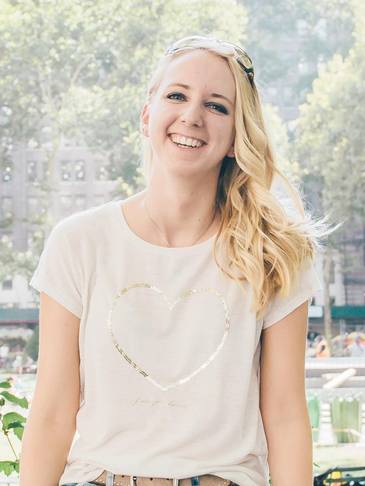
Programme content
A longing to discover the world, regardless of the crises that can occur around the planet, has always been a source of inspiration for people. The tourism sector has much more to offer than just traditional travel services, including leisure offers in the following areas:
- Culture
- Sport
- Music
- Architecture
- Design
- Health
During the three-year full-time or four-year part-time study programme, you will acquire the expertise required for successfully commencing a career in the tourism and leisure sector. This expertise, which is taught in all of our modules, comprises specialist skills, methodological skills as well as social and personal skills.
Study plan
The first year of study primarily serves to provide you with basic business knowledge, self-management training and teach you the principles of (scientific) problem-solving methods.
During your second study year, you are provided with profound basic tourism knowledge and expanded business knowledge. You also learn how to reflect on your thoughts and actions against an international backdrop.
In the third study year of the full-time programme and the fourth year of the part-time programme, you will gain specialist tourism expertise and job-specific competence in your selected area of focus (major). A wide range of free elective and mandatory elective modules allows you to consolidate your knowledge in line with your personal preferences and so create your individual profile. The bachelor’s thesis is compiled over a period of six months. The thesis will cover a practical issue that is addressed on behalf of a company or organisation. To get a feel for some of the potential topics for your bachelor’s thesis, feel free to have a browse through the publication database.
Do you work for a company and would like to commission a Bachelor Thesis? Find out about the possibilities.
Full-time study programme (3 years / 6 semesters)
Part-time study programme (4 years / 8 semesters)
Language concept
Proficiency in modern languages has an important place in the bachelor’s degree programme in tourism at the University of Applied Sciences of the Grisons. Students with an international background who are interested in an international career or who have a good command of English can attend international programme where all modules are taught in English. In the German-language programme, students are taught partly in English starting in the second year, and the majority of the classes are taught in English in the third year.
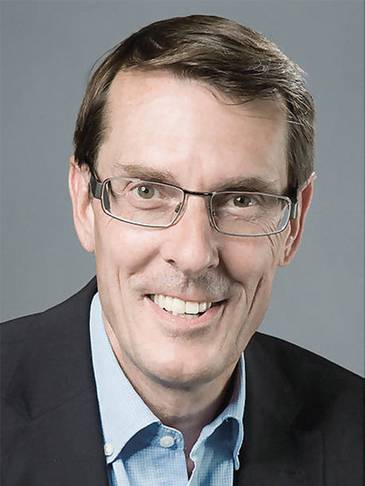
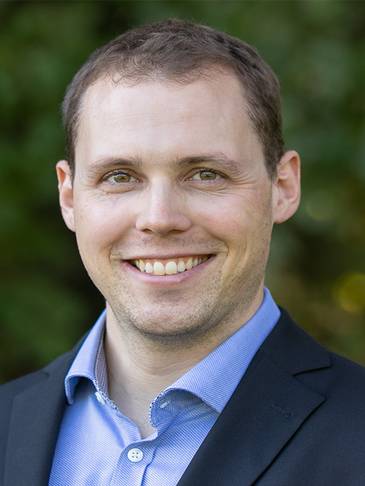
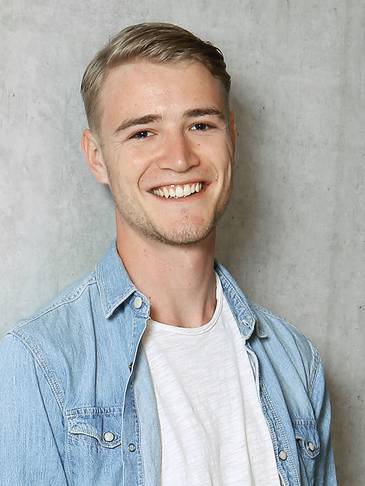
Majors*
With your major, you choose your desired functional area of specialisation. Depending on the major chosen, you can select a predefined number of modules as shown in detail in the brochure.
*We reserve the right to make changes regarding the offered majors as well as the course language.
Tourism Development and Service Innovation
The world of work places heavy demands on us all, both today and tomorrow. Qualified staff such as innovative businessmen and women, service designers, innovation managers or customer experience managers are needed, particularly in the service sector like tourism. Small and medium-sized enterprises in the service industry are looking for talented people who can adapt to constantly changing conditions and develop new services that will boost the competitiveness of their company. The “Tourism Development and Service Innovation” major is based on three dimensions: Strategy, Innovation Methods and Implementation. To successfully put innovations into practice, the needs of customers or the market potential first have to be identified. Once the relevant areas of innovation have been pinpointed, the next step is to apply agile innovation methods to develop solutions that cater to the needs of all stakeholders. Lastly, an idea can only be successfully monetised if it is sustainably implemented and anchored in the everyday life of a business. Digitalisation offers numerous ways of supporting these three dimensions. Modules such as “Service Design Methods”, “Strategic Innovation Management” or “Evidence-Based Decision-Making” prepare you in your major for proactively responding to dynamic market situations and new customer needs. You learn to develop people-centred service innovations, allowing you to stay ahead of the curve and make yourself indispensable in the service sector.
Tourism Planning, Management and Controlling
The work of a tourism manager calls for a wide range of skills and abilities to ensure success in both the short and long term. These skills involve the planning, organisation, management and control of resources, tasks and projects. For example, future tourism specialists have to be able to identify and solve problems quickly and effectively, demonstrate above-average conceptual skills and express themselves clearly. Networked and analytical thinking is essential to ensure the success of a company. The Tourism Planning, Management and Controlling major will help you to acquire these skills efficiently on a fascinating course. This guarantees you a smooth transition from university to your chosen career, for example in the field of event management, marketing or tour operating. The study programme is not just designed so you can work afterwards in Switzerland, but also prepares you for a career anywhere in the world. Our course modules such as “Tourism Marketing”, “Digitalisation in Tourism” and “Negotiation Management and Moderation Techniques” open up the multifaceted and challenging aspects of this sector to you, expertly preparing you for your very own career in this branch.
Elective Modules
In addition to your major, which consists of predefined, freely selectable, mandatory elective modules, you must acquire at least 12 ECTS points for free elective modules. You can chose these as you wish from the courses we offer, as well as other available subjects, following clarification.
*The majors apply both to the full-time and the part-time programme. Please note that the Tourism Development and Service Innovation major is taught solely in English, while the Tourism Planning, Management and Controlling major includes modules in German.
More than lectures
During their course, students undertake numerous excursions not only locally in the Grisons, but also to other regions of Switzerland and abroad. This object teaching focuses on the practical applicability of the acquired theoretical knowledge.
Culture and Foreign Language Field Experience
During their study programme students complete the Culture and Foreign Language Field Experience course. This course generally includes a self-managed individual stay at a destination with an unfamiliar culture lasting at least seven weeks, where possible involving the foreign language they have selected.
A culture is defined as being ‘unfamiliar’ when it differs from an individual's own culture with respect to the language that is spoken there, or its customs, norms and values.
Students are assisted with selecting a destination of their choosing. During their third semester (full-time model) they can either undertake work experience lasting several weeks, attend a language school or follow a study programme at this location. Part-time students can split this course into a maximum of three time windows over the entire study programme.
Study week abroad
In the module Project Management in Theory, the students learn to put what you have learnt into practice during the organisation of a study trip for which you will provide media reporting. Focus is placed on a research question that is clarified by means of analyses, company visits and expert interviews.
Knowledge transfer
Students can put theory into practice through consulting projects and bachelor theses for companies. Furthermore, there are opportunities for students who are interested in research for supporting us during their studies as student employees in our ProFit.Team. Not only will you learn something, but also earn some money at the same time.
Furthermore, the University of Applied Sciences of the Grisons has been offering interested students in their last year of study the option to network with specialist and management staff from business as part of the mentoring programme for many years. Our tourism students make active use of this offer. You can find an example of this in the interview with our former tourism student Jennifer Renggli or in the interview with Roland Schmid, mentor (only available in German).
Certification
The UAS Grisons was awarded the top grade by the World Tourism Organization UNWTO for the 'Bachelor of Science in Tourism' and the 'Master of Science in Tourism and Change' and received the UNWTO.TedQual certification. UNWTO.TedQual, the most important certification for higher educational programmes in tourism studies worldwide, aims at improving the quality of tourism education, training and research programmes.
Admission requirements
You must meet the following requirements for admission to the international class of the Bachelor of Science in Tourism at the University of Applied Sciences of the Grisons. Please contact us if you have any questions about the admission requirements. We will be happy to help you.
Do you have one of the following certificates?
- A Swiss school leaving certificate (Berufs-, Gymnasial- or Fachmaturität)
- A recognised international school leaving certificate. Further requirements may be applied if the school leaving certificate deviates considerably from the Swiss school leaving certificate.
Do you have work experience?
- You need at least one year of work experience in the economic and/or services sector, either through an apprenticeship, internship or full-time employment.
Knowledge of English
For the international (English) classes, a level B2 language certificate (Cambridge First Certificate or similar knowledge) or higher is mandatory.
For the German-English classes, English language skills at level B2 are required (e.g. Cambridge First Certificate or similar; language level is required, but a language diploma is not mandatory).
Knowledge of mathematics
Prior knowledge, at the level of the Swiss Vocational Baccalaureate (orientation Economics and Services), is required for the module Mathematics. The Moodle course 'Prior knowledge of mathematics' shows you the required prior knowledge and helps you brush up on any lack of knowledge.
Knowledge of accounting
At the start of the study programme, accounting knowledge at the level of the Swiss Vocational Baccalaureate (orientation Economics and Services) is required. If you acquired your vocational school-leaving certificate a long time ago or you do not or no longer possess basic knowledge of double-entry accounting, we recommend that you acquire this knowledge as part of your self-study.
Work experience
Work experience of one year in a full-time role is required. The work experience must be completed prior to commencing the study programme. This work experience may comprise several positions performed with different employers. The Director of Studies decides which professional experience is taken into account when determining the amount of completed work experience. Both practical and theoretical professional experience are considered here. You are required to prove your work experience by providing confirmation of employment. This confirmation must state the duration of the work experience as well as the specialist activities that you performed during this time.
Transfer from SUPSI
Students from the University of Applied Sciences and Arts of Southern Switzerland (SUPSI) have the possibility to transfer into the second year of studies in Tourism at the University of Applied Sciences of the Grisons after finishing the first year of studies in Leisure Mangement. In that case, students will receive the title 'Bachelor of Science FHGR in Tourism'.
Students from UAS Grisons have the opportunity to transfer into the second year of studies in Leisure Management at SUPSI, too. In that case, students will receive the title 'Bachelor of Science SUPSI in Leisure Management'.
For more information, please contact our study advisory team.
Transfers from other universities
To arrange a transfer from another university, university of applied sciences or PET college, you must contact the Director of Studies. Credits may be awarded, in consultation with the Director of Studies, for modules already completed at another university.
Exceptions
You do not meet the aforementioned admission conditions for the study programme but can demonstrate that you have years of work experience and are in continual professional development? If so, you have the opportunity to apply under given circumstances. The Prorectorate and the Director of Studies decide on admissions on a case-by-case basis.
Organisational information
How much are the study fees for the bachelor’s programme at the University of Applied Sciences of the Grisons? Where does the programme take place? How many ECTS credits will I receive? On what days will I have lectures and seminars? What degree will I be awarded after completing the programme?
Studying at the UAS Grisons
The UAS Grisons helps students to make their study time as easy and pleasant as possible. For example, we offer various services such as two cafeterias and libraries, a sports programme, counselling services, a career centre as well as language courses, various student associations, a choir and much more. Discover now
Find out more about life in Chur, nature and leisure and use our flat search (German only).
Tuition fees and financing
There is a one-off enrolment fee of CHF 300, which is deducted from the tuition fee for the first semester. If you do not take up the offer of a place on the programme, the enrolment fee will be forfeited.
The tuition fee per semester is CHF 960 for students with Swiss citizenship or the Principality of Liechtenstein citizenship. The tuition fee per semester for all other students is CHF 1,550.
Foreign students who have resided in Switzerland for at least two years before the start of their studies and who are financially independent and not in education may be able to benefit from the reduced tuition fee of CHF 960. The reduced tuition fee has to be reviewed and approved by the University of Applied Sciences of the Grisons on the basis of documentation provided by the students.
Students not from Switzerland, the Principality of Liechtenstein, the European Union or the European Free Trade Association are charged a deposit of CHF 3,000.
The tuition fees do not include teaching materials, (subject-specific) software, travel, food or accommodation in connection with field trips, multiday seminars and the bachelor thesis.
You will need a suitably powerful laptop (Windows recommended).
Find out about funding options for your studies, such as scholarships or grants.
Duration of study
The Bachelor's programme lasts three years as a full-time course and four years as a part-time course. Studies begin in September (week 38). The first block week takes place before the official start of studies. One academic year consists of two semesters, each of which is usually 14 weeks long. In addition, there are examination weeks and block weeks.
The exact dates and details can be found in the academic calendar.
Days and times of lessons
On the full-time programme, contact lessons generally take place five days a week; on the part-time programme, they take place on three consecutive days. The compulsory block weeks for all students generally take place between Monday and Friday. Exceptions are possible.
Classes start at 9:15 am and last until 4:45 pm. It is possible that individual courses, such as language lessons, may run until 18:30 at certain times. The timetable structure allows students travelling from cities such as Zurich or St.Gallen to commute easily by public transport.
Degree title
Successful graduates of the Bachelor's degree programme in Tourism are awarded the title "Bachelor of Science FHGR in Tourism" with the respective specialisation.
Semester abroad
Spending a semester abroad can open up new horizons for you. International exchange is, of course, a tremendous asset to tourism and leisure. The University of Applied Sciences of the Grisons maintains close ties to a network of universities, technical colleges and other educational establishments worldwide and would be pleased to help you organise one or two semesters of study abroad.
Semesters abroad generally count as full or partial semesters of your prorgramme, enabling you to complete your studies within the planned period.
In the following you can find an overview of the partner universities where you can spend a semester abroad:
Double degree with the University of the Sunshine Coast in Australia
Whoever wants to collect more experience abroad can apply for a study year at our partner university USC in Australia. Every year, five students get the opportunity to get one of these study places. You complete (with special conditions) the second study year at the USC and, if you pass all the exams, you will receive the Bachelor of Science in Business Administration of the USC in addition to the Bachelor of Science in Tourism of the University of Applied Sciences of the Grisons after the third year.
ECTS credits and regulations
The Framework Regulations and the Study and Examination Regulations govern the Bachelor's degree programme in Tourism.
European Credit Transfer and Accumulation System (ECTS)
The European Credit Transfer and Accumulation System (ECTS) is a tool of the European Higher Education Area (EHEA) for making studies and courses more transparent and thus helping students to move between institutions of higer education.
Students receive ECTS points for their learning outcomes, calculated from the workload and other framework conditions of the individual modules. One ECTS point corresponds to an average workload of 25-30 hours. In addition to attending classes, the student workload also includes the time invested in preparing and following up on learning content, examinations and self-study. At the UAS Graubünden, the Bachelor's programme comprises 180 ECTS credits, a consecutive Master's programme 90 ECTS credits.
Visa and Residence Permit issues
Conditions for Non-EU/EFTA students
- Student requires an entry visa as well as a residence permit for Switzerland. The International Office initiates this process once the application fee and the tuition fee for the first semester has been received. The student is responsible for paying the costs for the entry visa and the residence permit.
- Student must provide a language diploma (IEL TS/TOEFL, etc.) for the visa application.
- Student must provide evidence of sufficient funds for living expenses in Switzerland (approximately CHF 2'000.00 per month) for the visa application.
- Student must have a sufficient health & accident insurance policy for Switzerland and personal liability insurance.
- After a period of 6 months living in Switzerland, students may work up to 15 hours per week during the semester and up to 100% during the semester holidays. The employer must apply for a work permit and the University of Applied Sciences of the Grisons must agree that the employment workload is manageable in addition to the workload of the study programme.
Conditions for EU/EFTA students
- Student requires a residence permit for Switzerland. The International Office applies for such permits on arrival in Switzerland. The student is responsible for paying for the residence permit.
- Student must have sufficient funds for covering living expenses in Switzerland (CHF 2000.00 per month).
- Student must provide a sufficient health & accident insurance policy for Switzerland and personal liability insurance.
- Student is currently permitted to work up to 15 hours per week. The employer must apply for a work permit and the University of Applied Sciences of the Grisons must agree that the employment workload is manageable in addition to the workload of the study programme.
For further information regarding the requirements for student visas, refer to website from the cantonal migration authorities (only available in German). (only available in German).
For general information concerning entry & residence to Switzerland please consult the website of the State Secretariat for Migration SEM.
Working while studying full-time
Studying requires a high level of commitment, dedication and time resources. The combination of studying and working may sound great but is generally not suitable for everyone and needs to be planned carefully.
If work plays an important role for you, a part-time study might be a better solution than getting stuck in the middle of your studies due to too much stress.
For Swiss students and students from the EU/EFTA area
Full-time study requires a high level of commitment and dedication. We therefore advise you to concentrate on your studies, especially in the first few semesters, and not to take on professional commitments right from the start. If you want or need to work next to your studies, you must plan this carefully. The decision should be based on your own experience; we see that our Swiss and EU/EFTA students generally find some small part-time jobs from the third or fourth semester onwards.
For students who have acquired their previous education outside Switzerland (especially for nationals from non-EU/EFTA countries)
Foreign students who decide to study tourism full-time with us must be aware that the programme requires a high level of commitment and a lot of time during the entire three-year course. (Part-time study is not allowed for students coming from outside the EU/EFTA due to visa regulations).
Experience has shown that it is rarely possible for non-EU/EFTA citizens to work alongside their full-time studies; the effort involved during their studies and the political hurdles are generally considered as too high, and the opportunity to work part-time during their studies (usually a few hours) is only reserved for the very best of the class. We therefore have to conclude that it is not possible for non-EU/EFTA students to finance their own studies or living expenses during their studies through part-time work.
Assistance Measures
The University of Applied Sciences of the Grisons promotes equal opportunities and gender quality among its students. To this end, it breaks down cultural and structural barriers and supports its students in expressing their individuality. It implements legal principles of equality and prevents discrimination.
If you are living with a disability or chronic illness that makes studying difficult, you can apply for assistance measures. You can find more details on the website of Assistance Measures Office.
Application and advice
Application
If you would like to apply for a place on the programme, please fill out and submit the online application with the required documents.
Application deadline
The application deadline is 31 May of the year in which you start your studies. The study places will be allocated according to the date of receipt of the application documents. Applications will still be considered after the application deadline, provided that study places are available. Information can be obtained from the administration. Please note that if you need a visa to study in Switzerland, applications cannot be accepted after May 31st.
Advice
Do you have any questions about the study programme? Would you like any advice, or are you still unsure? Do you have any administrative questions? We will be happy to help you.
University of Applied Sciences of the Grisons
Comercialstrasse 22
7004 Chur
Switzerland
Telefon +41 81 286 24 56
E-Mail tourismus@clutterfhgr.ch
Director of Studies
Information and Advice
Administration and Admissions
Information events
Our information events are held in German.




